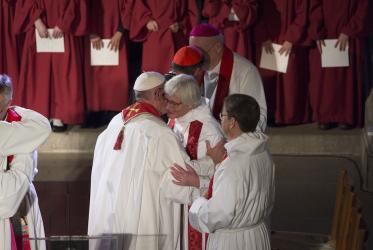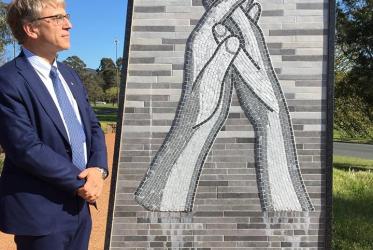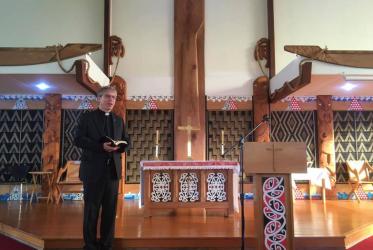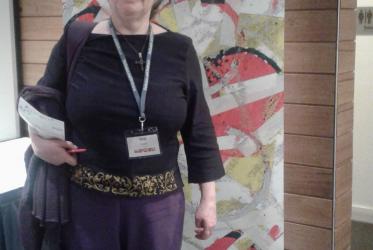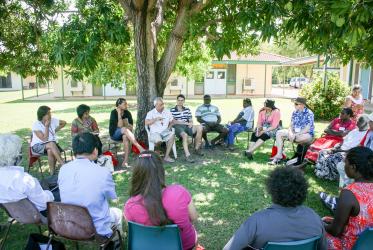Displaying 121 - 140 of 238
Women’s mentoring focus of Thailand gathering
23 April 2017
“Overcoming economic injustice” vision of WCC’s Athena Peralta
23 February 2017
During Lent, a “carbon fast” can honour God’s creation
09 February 2017
Plans for 2017 decided by WCC Executive Committee
01 December 2016
WCC Executive Committee commends Reformation dialogue
28 November 2016
WCC Executive Committee issues statement on climate justice
25 November 2016
New videos help congregations hasten HIV response
20 October 2016
WCC general secretary visits Aotearoa New Zealand
10 October 2016
Indigenous spirituality: can it transform injustice into justice?
01 September 2016





